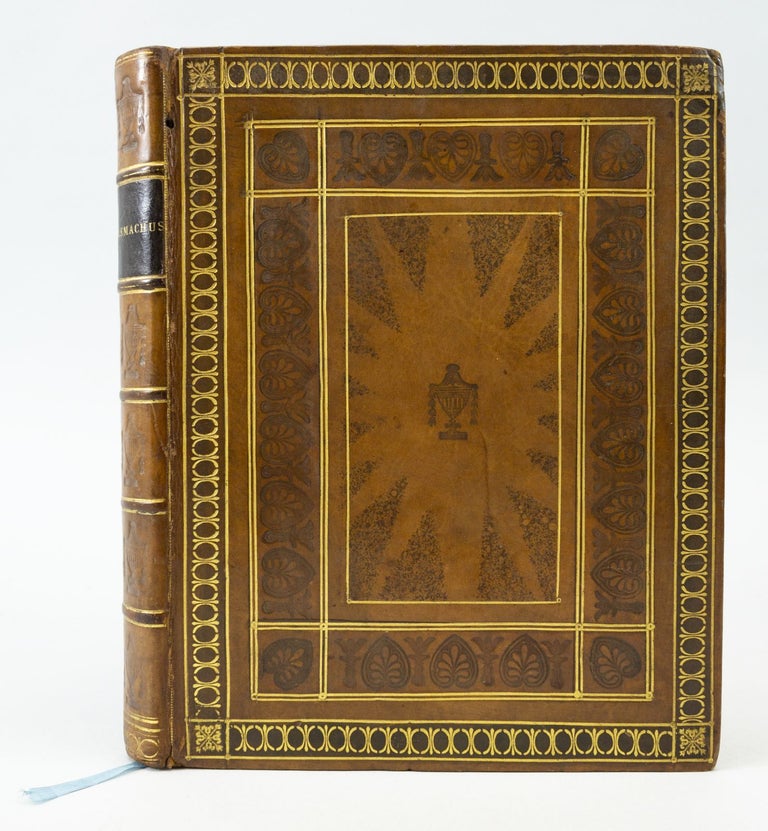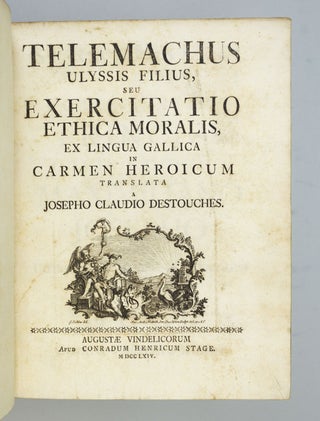TELEMACHUS ULYSSIS FILIUS.
(Augustae Vindelicorum [Augsburg]: Conradum Henricum Stage, 1764). 208 x 160 mm. (8 1/8 x 6 1/4"). 9 p.l., 262 pp.Translated from French into Latin by Joseph Claude Destouches. Second Edition in Latin.
VERY ATTRACTIVE LATE 18TH CENTURY ETRUSCAN CALF IN THE STYLE OF EDWARDS OF HALIFAX, covers with gilt border, central panel framed by stencilled palmettes within double gilt rules, an Etruscan-style vase at center within a stencilled sunburst, raised bands, spine panels with blind-stamped Etruscan vase, black morocco label, gilt-rolled turn-ins, all edges gilt. With printer's elaborate engraved device on title page, engraved portrait of Elector Maximilian-Joseph of Bavaria at the head of the dedication to him, engraved allegorical headpiece at the opening of Book I, wood-engraved tailpieces at end of each section. ◆Small wormhole near head of front joint, two corners a bit bumped, minor foxing to title and final page, other trivial imperfections, but QUITE A FINE, WIDE-MARGINED COPY, clean, fresh, and bright internally, and in a binding with only minor defects.
This beautifully preserved and attractive Neoclassical binding is a fitting cover for a Latin edition of Fénelon's Homeric coming-of-age tale. Edwards of Halifax is credited with developing the process of acid staining calf by using stencils, a method known most notably to produce, as here, their so-called Etruscan calf bindings (after the Etruscan vase decoration they resembled). The process was also adopted by binders on the Continent, and became a fashionable choice for bindings in the late 19th century, when the present binding was surely produced. It is difficult to say whether this binding was done by the Edwards firm or by an imitator, but in any case, the quality of execution is very high. The popularity of Fénelon's account of the adventures of the son of Odysseus also spread, in this case beyond his native France, and it became a favorite of schoolboys far removed from the young Dauphin for whom it was originally composed. First printed in 1759, our Latin translation offered an opportunity for young men to practice reading that classical language. The engravings here were newly designed and executed for this edition by German painter and engraver Georg Sigmund Rösch (d. 1766). (ST15125)
Price: $2,250.00


